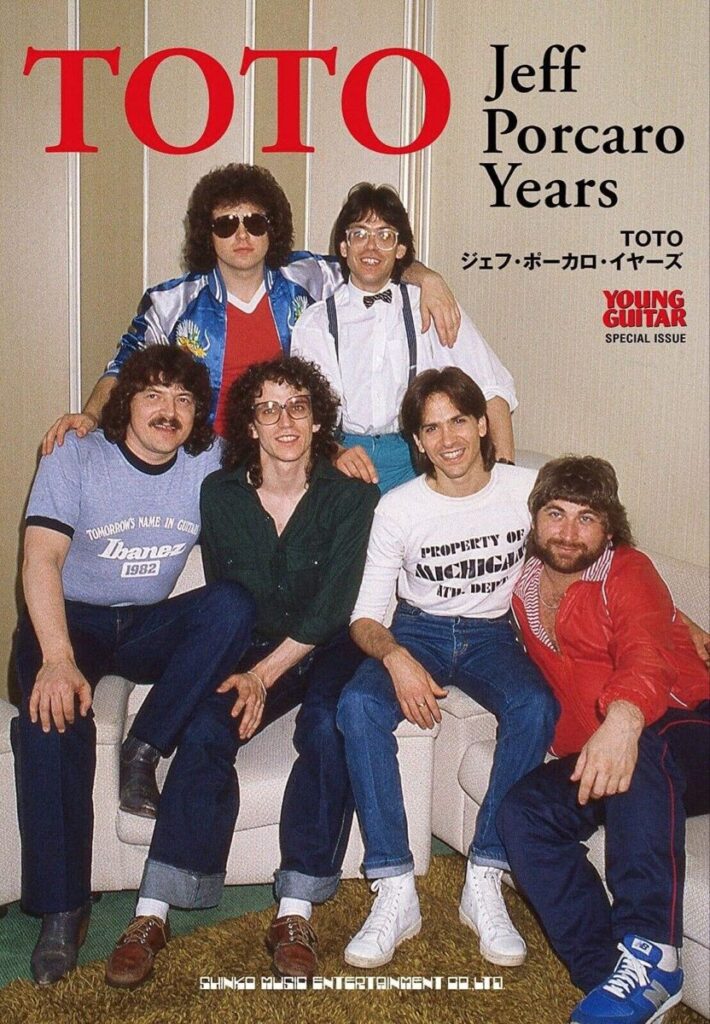
Toto’s “Africa”: A Journey Through Time and Sound, an Enduring Anthem of Distant Longings
Ah, dear reader, settle in with a warm cup and let’s journey back to a time when synthesizers reigned supreme and a certain song, with its distinctive kalimba melody and soaring chorus, captured the collective imagination. We’re talking, of course, about Toto’s indelible masterpiece, “Africa.” Released in 1982 as a single from their fourth studio album, Toto IV, this track didn’t just climb the charts; it conquered them. By February 1983, it had ascended to the pinnacle, claiming the coveted number one spot on the Billboard Hot 100, a testament to its widespread appeal and undeniable charm. It also enjoyed significant international success, reaching the top 10 in numerous countries around the globe.
But “Africa” is more than just a chart-topper; it’s a tapestry woven with threads of longing, an almost childlike wonder at the unknown, and a poignant exploration of themes that resonate deeply within us, especially as the years unfold and memories become more precious. The story behind this iconic track is as fascinating as the song itself, primarily conceived by Toto’s keyboardist and vocalist, David Paich. Paich often spoke of the song’s genesis stemming from his deep respect and fascination with the continent of Africa. He envisioned a benevolent missionary traveling through the vast landscapes, bringing aid and experiencing the profound beauty and challenges of the land. This narrative, however, is beautifully intertwined with a more personal and universal sentiment: the idea of a faraway place, a dreamland that beckons with its mystique and promises of both peril and wonder.
It’s this blend of the literal and the metaphorical that gives “Africa” its enduring power. The lyrics speak of “wild dogs crying in the night,” “the drums of Africa,” and ” Kilimanjaro rises like Olympus above the Serengeti.” These aren’t just geographical markers; they are brushstrokes painting a vivid picture of an untamed wilderness, a place where nature’s power is palpable and humanity’s struggles and triumphs play out against an epic backdrop. Yet, alongside these grand images, there’s a tender, almost vulnerable plea: “I know that I must do what’s right, sure as Kilimanjaro rises like Olympus above the Serengeti, I seek to cure what’s deep inside, frightened of this thing that I’ve become.” This line, often attributed to the contributions of drummer Jeff Porcaro, injects a deeply personal layer into the song, transforming it from a mere travelogue into a introspective journey. It speaks to the universal human experience of confronting one’s inner demons, of seeking solace and resolution in a world that can often feel overwhelming.
For many of us who remember its initial release, “Africa” wasn’t just a song; it was a feeling. It transported us, if only for a few minutes, to a place we might never see, yet one that felt strangely familiar through its evocative imagery and haunting melody. The intricate instrumentation, with its layered synthesizers, the aforementioned kalimba providing that instantly recognizable hook, and the powerful, almost tribal percussion, all contribute to an immersive sonic landscape. It’s a song that evokes a sense of epic scale, yet remains intimately human in its core message. It’s a testament to Toto’s exceptional musicianship and their ability to craft a piece that transcends genres and generations.
As we look back, “Africa” stands as a testament to the power of music to evoke memories, stir emotions, and even transport us across time and space. It reminds us of a simpler era, perhaps, when a song could truly capture the imagination of millions and become a shared cultural touchstone. So, the next time you hear those familiar opening notes, let yourself drift back, dear reader, and perhaps find a piece of yourself in the distant longings that “Africa” so beautifully articulates.